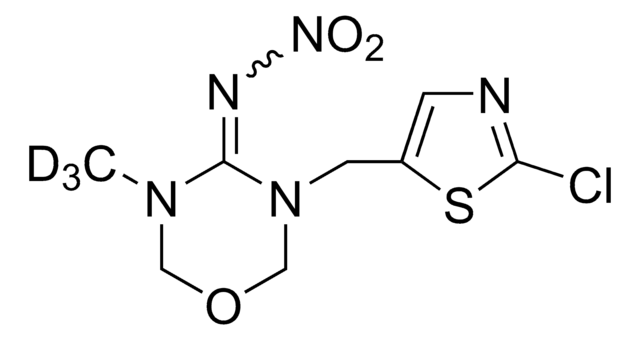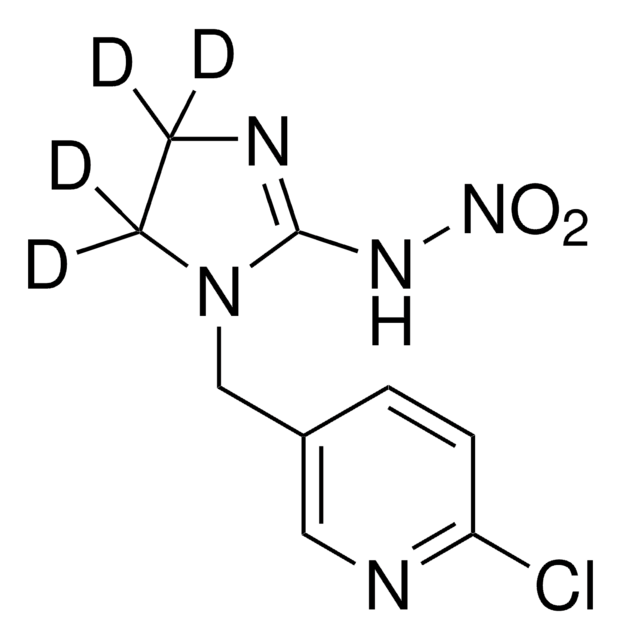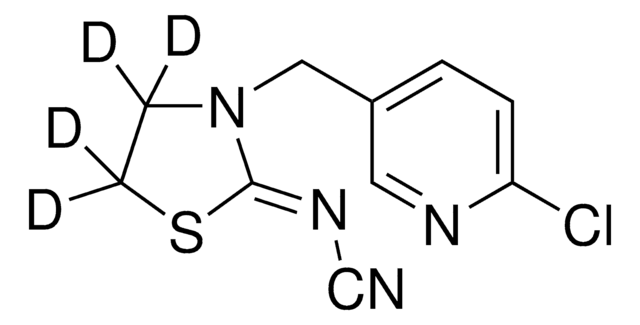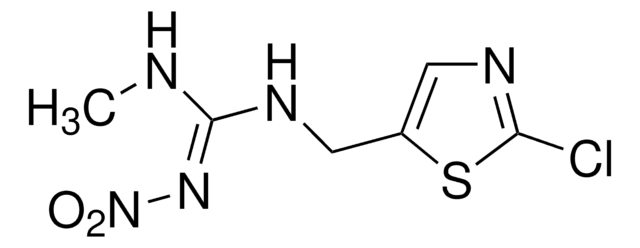56816
Clothianidin-d3
PESTANAL®, analytical standard
Sinónimos:
(E)-1-(2-Chloro-5-thiazolylmethyl)-3-(methyl-d3)-2-nitroguanidine
About This Item
Productos recomendados
grade
analytical standard
Quality Level
product line
PESTANAL®
assay
≥97.0% (HPLC)
shelf life
limited shelf life, expiry date on the label
technique(s)
HPLC: suitable
gas chromatography (GC): suitable
application(s)
agriculture
environmental
format
neat
mass shift
M+3
SMILES string
[2H]C([2H])([2H])N\C(NCc1cnc(Cl)s1)=N/[N+]([O-])=O
InChI
1S/C6H8ClN5O2S/c1-8-6(11-12(13)14)10-3-4-2-9-5(7)15-4/h2H,3H2,1H3,(H2,8,10,11)/i1D3
InChI key
PGOOBECODWQEAB-FIBGUPNXSA-N
Categorías relacionadas
General description
Application
Packaging
Legal Information
signalword
Warning
hcodes
Hazard Classifications
Acute Tox. 4 Oral - Aquatic Acute 1 - Aquatic Chronic 1
Storage Class
11 - Combustible Solids
wgk_germany
WGK 3
flash_point_f
Not applicable
flash_point_c
Not applicable
Elija entre una de las versiones más recientes:
¿Ya tiene este producto?
Encuentre la documentación para los productos que ha comprado recientemente en la Biblioteca de documentos.
Los clientes también vieron
Protocolos
Learn more about Neonicotinoids - active substances used in plant protection products to control harmful insects.
Learn more about Neonicotinoids - active substances used in plant protection products to control harmful insects.
Learn more about Neonicotinoids - active substances used in plant protection products to control harmful insects.
Learn more about Neonicotinoids - active substances used in plant protection products to control harmful insects.
Nuestro equipo de científicos tiene experiencia en todas las áreas de investigación: Ciencias de la vida, Ciencia de los materiales, Síntesis química, Cromatografía, Analítica y muchas otras.
Póngase en contacto con el Servicio técnico










